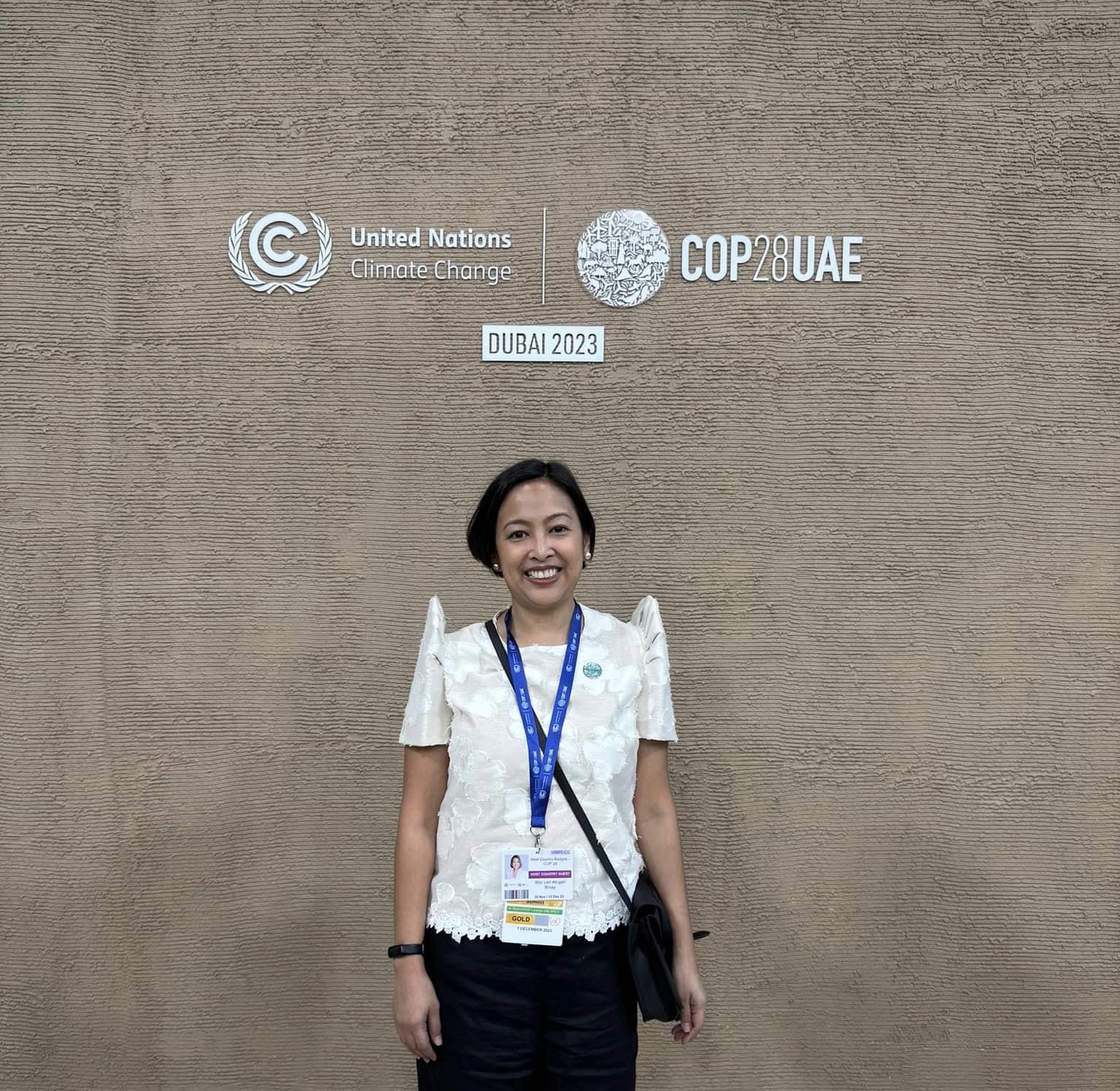Funding a big challenge for climate action solutions - Mayor Abby
Makati City Mayor Abby Binay on Monday, Dec. 4, said the allocation of funds for the research and implementation of climate action programs remains as one of the biggest challenges, especially among small developing cities, in conceptualizing their own sustainability and climate change-centered initiatives.

Mayor Abby Binay
Binay, who is the sole Filipino and Southeast Asian mayor to become a member of the Advisory Committee of the prestigious Conference of the Parties (COP28) also referred to as the 28th United Nations Climate Change Conference in Dubai, UAE, expressed her gratitude for the chance to be the voice of small cities in raising the challenges posed by financing to their climate change initiatives.
"Nakaka-proud na mapabilang ako sa all-female leaders mula sa iba’t ibang cities sa mundo sa panel discussion na tumalakay sa mga kinakailangang reporma sa mandato at operating models ng Multilateral Development Banks (MDBs) (I'm very proud to be a part of the all-female leaders group from all over the world in the panel discussion tackling the needed reforms in the mandate and operating models of Multilateral Development Banks)," Binay said.
“(Ang aking pangunahing rekomendasyon ay maging ‘banks for cities’ ang MDBs. Panahon na para bigyan ng MDBs ng kaukulang pansin ang mga pangangailangan ng mga lokal na pamahalaan, at hindi lamang nakatutok sa national governments. Mas makakausad ang local climate action kung ang MDBs tulad ng World Bank ay maglalaan ng climate investment programs na tutugon sa needs ng mga syudad at bayan, tulad ng kakulangan sa pondo at technical expertise (My primary recommendation is for MDBs to become the "bank for the cities". It's time for MDBs to give proper attention to the needs of local governments and not just to national governments. Local climate action can gain more ground if MDBs such as the World Bank can allocate climate investment programs that will respond to issues of cities and towns such as the lack of funds and technical expertise)," she added.
The mayor noted that there are small-scale projects that do not necessarily need billions-worth of funding that can be funded by MDBs.
Aside from a much lower financial risk exposure, they can help more localities to become much resilient and prosperous despite the effects of climate change.
"Isa pa, mas makabubuti kung ang pondo ay ibibigay sa local currency ng bansa, lalo pa’t mabilis tumaas ang foreign exchange rate. Sa nakaraang ilang buwan nga’y tumaas ang US dollar, mula sa P45 ay naging P56 na ngayon. Dahil mapapababa ng hakbang na ito ang financial risk at burden ng mga lokal na pamahalaan, mas magiging kumpiyansa sila sa pagsusulong ng climate initiatives (It will be much better if the funds that will be given to beneficiary cities and localities will be based on their local currency especially the increase of the foreign exchange rate is fast. In previous months, the value of US dollar is fast increasing from P45 to P56. Since this step will help mitigate financial risk and burden of local governments, they will be more confident in pushing for climate initiatives)," Binay stressed.
PPPs
In June, the mayor underscored the importance of public-private partnerships (PPPs) in the creation of green initiatives at the Cities Climate Finance Roundtable at the UNESCO headquarters in Paris, France.
Ang pinakamalaking challenge sa climate action ay ang mapagkukunan ng pondo para sa mga programa ng mga lungsod o bansa. Magastos ang green initiatives. Halimbawa na lang ang Makati Subway (MkTr) ay nagkakahalaga ng P192 billion! Isipin n’yo na lang kung hindi ito public-private partnership (PPP) kung saan tayo kukuha ng ganyang halaga para sa isang proyekto na magbababa ng Greenhouse Gas emissions sa Makati at mag-i-improve ng mobility ng mga residente (The biggest challenge to climate action is the sourcing of funds for the programs of cities and countries. Green initiatives are costly investments. For example, the Makati City Subway costs P192 billion! Just imagine, if the project was not a public-private partnership, where can the city government find the funds for it which will greatly help mitigate Makati's Greenhouse Gas emissions and improve the residents' mobility)," she explained.
MkTr is an 11-kilometer underground rapid transit line that will link establishments across the Makati business district.
The system will have two tracks, 10 underground stations, and air-conditioned coaches which can accommodate 200 persons per car. It will also have a train yard, maintenance depot, and central command center at ground level.
Binay added that the city government's smart electric buses program is also another sustainability program of her administration made possible by PPPs.
Last year, Makati City and the Korea International Cooperation Agency (KOICA) signed a Memorandum of Agreement (MOA) for the establishment of the smart public transport system in the city.
The $13-million partnership includes the development of a public transportation master plan, establishment of a public transport information and communications technology (ICT) system, pilot operation of electric vehicle (EV) bus service, establishment of an EV bus depot, and capacity building of officials and personnel.
The city government will provide the lands for the construction of the EV bus depot and parking area, oversee the implementation of the project, and secure a sufficient amount from its budget to cover the expenses required for the operation of the project, including the cost of proper storage, utilities for operation, and maintenance of ICT system and EV buses.
The mayor said that the construction of the EV bus depot, control center, ICT system, and other facilities started during the first quarter of 2023 and is expected to be completed by the first quarter of 2025.